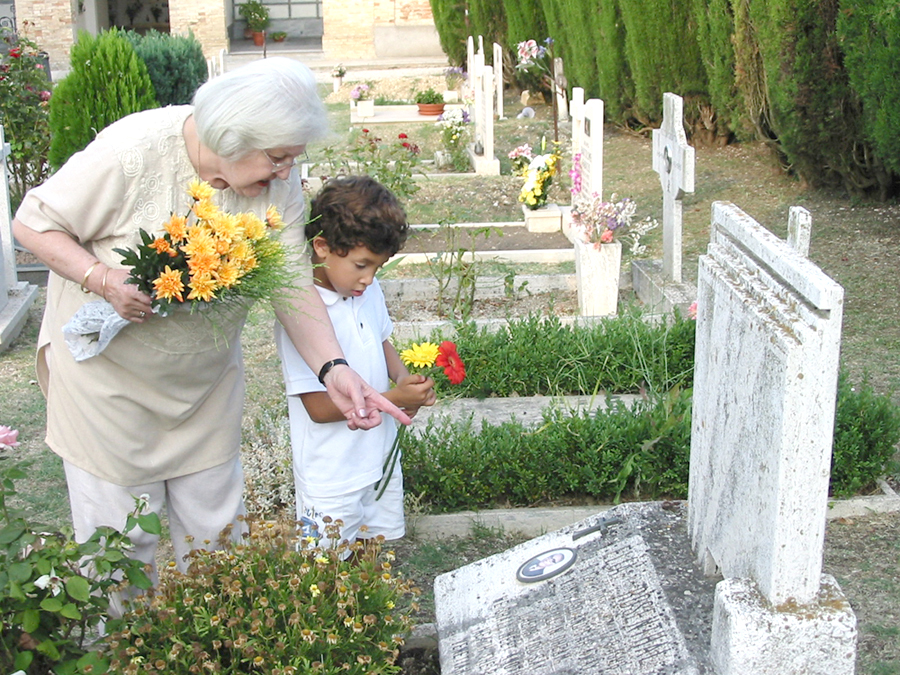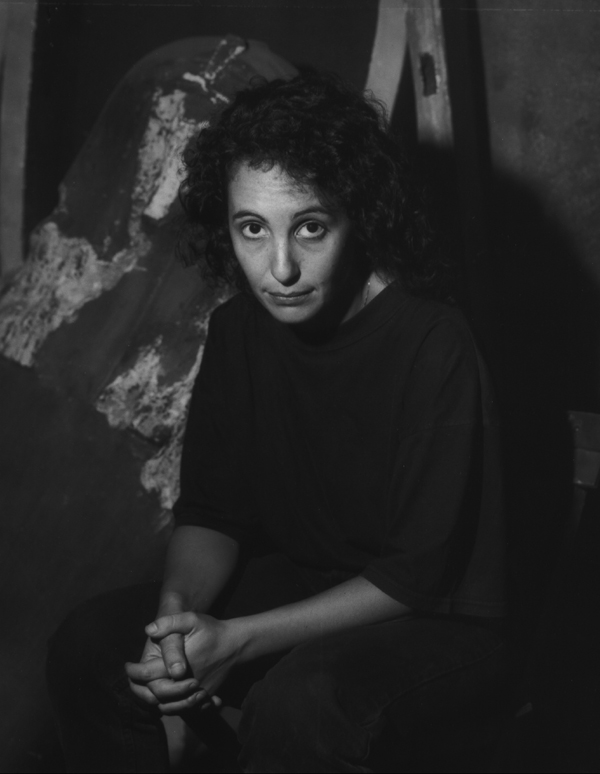Salata Baladi (An Egyptian Salad)
Egypt/Switzerland/France | 2008 | 105 minutes | Color | DVD | Arabic | Subtitled | Order No. 09957
SYNOPSIS
But, as she and Mary weave their way through the family’s multiethnic fairytales, they bump unexpectedly into the silence around old prejudices concerning the estranged Egyptian-Jewish branch of their family living in Israel since 1948. Bravely inspired to further challenge the boundaries between cultures, religions, and nationalities that are used to divide people, Kamel embarks on an amazing personal journey with her mother and nephew to Israel and Italy, confronting with an open heart, fears and prejudices along the way.
PRESS
“A welcome reminder that beyond politics lie people with much more in common than their leaders are willing to acknowledge…. [A] multilingual, multiethnic documentary.”
“Exceptional… [it] hits a sensitive nerve in a region where long wars… still constitute an integral part of the people’s collective memory.”
SCREENING HIGHLIGHTS AND AWARDS
- Mumbai Int’l Film Festival, Golden Conch, Best Long Documentary, & Special Prize, Int’l Critics Jury FIPRESCI
- San Francisco Arab Film Festival, Noor Award, Outstanding Documentary
- International Documentary Film Festival Amsterdam (IDFA)
- Locarno Int’l Film Festival in Switzerland
- Munich Int’l Doc Film Festival
- Lisbon Int’l Documentary Film Festival
- Middle East Int’l Film Festival
- Ayam Beirut Festival
- Cairoscape Film Festival, Berlin
- Ismailia Int’l Film Festival, Egypt
ABOUT FILMMAKER(S)
Egyptian filmmaker, Nadia Kamel was born in 1961 in Cairo, where she continues to live and work.The daughter of journalist parents with a long history of political activism, Kamel grew up in a house steeped in progressive politics and a passion for the arts and popular culture. She studied microbiology and chemistry before turning her full attention to her life-long romance with the cinema in 1990. Working as an assistant director to leading independent filmmakers in contemporary Egypt including Atteyat El-Abnoudy, Youssef Chahine and Yousri Nassrallah, Kamel has considerable experience in the making of both documentary and feature films. When Kamel first began to work on her own projects in 2000, she found that a saturated production scene left little space for new directors and unconventional topics. Eventually, she concluded that addressing the daring, often taboo topics, confined to the margins of conventional Egyptian discourse that she hoped to engage with in her projects, she would need to take the risk of producing her own low-budget films. SALATA BALADI (AN EGYPTIAN SALAD), her first film, has been produced in this spirit of indomitable independence. After nearly five years of working solo, she was joined by co-producers Films d'Ici and Ventura Films in the post-production of this family tale celebrating a century of Egyptian cosmopolitanism.
Director’s Note:
"It struck me that our history is contained in the homes we live in, that we are shaped by the ability of these simple structures to resist being defiled." (Achmat Dangor, Kafka's Curse)
The original inspiration for this film was simple enough: a love for my family's stories and a wish to share them. It was a story telling project. The energy that eventually propelled me into this adventure was more complicated. I saw my octogenarian mother aging and my 10-year-old nephew growing up under a shadow of satellite dishes and a rising clamor about some inevitable clash of civilizations. And a mixture of hope and fear overtook me.
My mother's stories, woven across the 20th century, confound any straightforward understanding of the historical events during which they were played out and are almost always an exception to the reductive homogeneity with which we are taught to view 'History.' In my family, religions and cultures get married when they appear to be divorcing in the global arena. In a world where my family's identities are being squeezed into irreconcilable positions, I needed to document my history before I became apologetic about it and the myth of its extinction was realized.
But as my mother told her stories, I discovered that the film could not simply be a reclaiming of our treasured past: we found ourselves colliding with pockets of denial and silence. Without confronting the taboos of our present, my mother's stories were reduced to self indulgence and nostalgia. And so my story telling film became a witness to a new story still in the making - a story about my family's efforts to once more climb the wall that unjustly insists on separating our principles from our humanity.
(10/08)
Subject Areas
RELATED LINKS
MATERIALS


